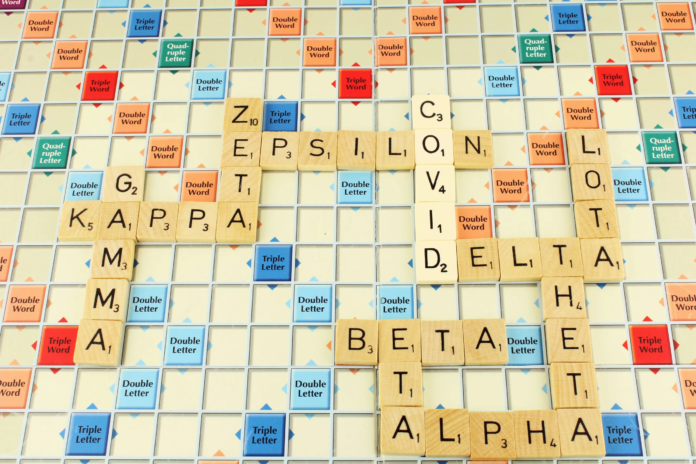The Omicron BA.5 subvariant is no longer the leading cause of COVID-19 infections in the United States. Instead, “scrabble variants” are responsible for most of the new COVID cases. A host of new sublineages – BA.2, BA.4, and BA.5 – are mainly responsible for new infections. The “scrabble variants” contain letters like X and Q that get high scores in the game.
The new variants descend from different branches of the Omicron family tree. However, they have evolved to share some of the same changes in their genomes that help them slip past our immunity against the virus. “Scrabble variants” have been gaining ground against the subvariant BA.5. Now, BA.5 only accounts for 49.6% of new infections in the U.S.
Dominant “Scrabble Variants”
BQ.1 and BQ.1.1 are two variants growing extremely fast. At the start of October, each variant accounted for about 1% of new infections in the U.S. They nearly doubled each week. Altogether, they account for more than 1 in 4 new COVID infections in the U.S.
Percentage breakdown of infections from various “scrabble variants:”
- BQ.1 – about 14%
- BQ.1.1 – 13%
- BA.4.6 – 10%
- BF.7 – 7.5%
A slew of other new variants accounts for smaller pieces of the COVID-19 pie. In addition, these variants are not evenly distributed across the U.S. BQ.1.1 is now causing about 1 in 5 new Covid-19 infections in the Northeast, where cases and hospitalizations are rising. But that strain is causing just 3% of new Covid-19 infections in the Pacific Northwest.
Each variant is slightly different, but they all carry some of the same vital mutations that help them skirt immunity from vaccines and prior infections. Thus, making them more likely to lead to breakthrough infections and reinfections. WHO’s Technical Advisory Group on SARS-CoV-2 Virus Evolution said the most mutated families of the rising subvariants – XBB and BQ.1 – aren’t different enough from Omicron to be considered different variants of concern. XBB was detected in the U.S. in September but not causing a significant number of cases in the country.






